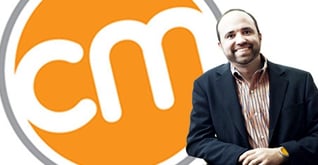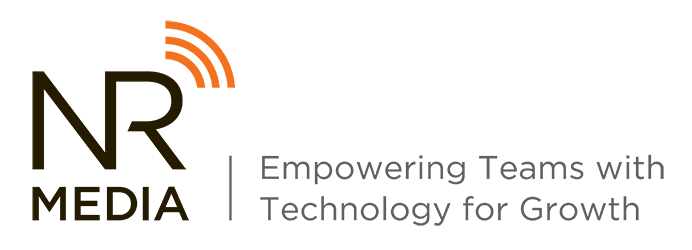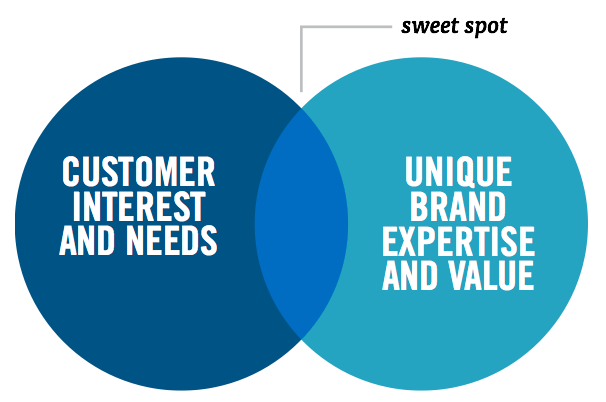
As a marketer or business owner, you're tasked with understanding a variety of marketing approaches and techniques and determining which can and will apply in your business.
Since the late 2000's, two compelling schools of thought have gained significant attention among marketing circles, in large part due to their key focus of using educational and informative content to attract and retain customer eyeballs as opposed to the interruptive advertising techniques that have been the mainstay for decades.
My intention with this post is to help you get more familiar with the definition of each approach while comparing the origins of the terms.
Marketing Approaches Driven by Companies
Both Content Marketing and Inbound Marketing have one key thing in common - each approach is the brainchild of a high-growth, start-up company.
While each approach is aligned with the above philosophy of attracting and retaining attention from customers and converting it into buying actions, it's important to understand the origins and differences between the two.
- Content Marketing is a term that has it's roots in Cleveland, Ohio and of Content Marketing Institute, a privately held publishing organization.
- Inbound Marketing is a term created and evangelized by HubSpot, a publicly-held, Boston-based software company who builds and sells a marketing automation software suite.
Each of these companies recognized that in order to successfully compete, they would need to drive the creation of new segments within the marketing industry.
By defining the new approach and lighting the path for marketers through education, inspiration and interaction, each company could also drive sales of their various products and services.
Inbound Marketing and HubSpot
The term Inbound Marketing can trace it's origins to roughly align with HubSpot's founding at MIT in 2006.
Founders Dharmesh Shah and Brian Halligan needed a way to describe the antithesis of outbound advertisements, cold calls and direct mail.
T his term would serve to drive home the bigger challenges that their marketing automation software would solve -- a rally cry that would align marketers and sales folks under the same flag.
his term would serve to drive home the bigger challenges that their marketing automation software would solve -- a rally cry that would align marketers and sales folks under the same flag.
By HubSpot's definition, "inbound" refers to marketing activities that bring visitors in, rather than marketers having to go out to get prospects' attention. This inbound method earns the attention of customers, makes the company easy to be found, and draws customers to the website by producing interesting content.
As typical of companies working to carve out an industry segment, HubSpot released their State of Inbound Report - a series of annual reports that would track the inbound movement as it grew, advanced and expanded into global reach.
Download the Complete Collection of State of Inbound Annual Reports
HubSpot's VP of Content, Joe Chernov, recently published a post that cites results from the 2014-2015 Annual State of Inbound survey that suggest that many marketers view content marketing as a subset of inbound marketing. While the recent data is compelling, it's hardly conclusive.
The State of Inbound reports on approximately 3500 sales and marketing professionals. The data set relies heavily on a high concentration of respondents also being current HubSpot customers. These particular sales and marketing individuals are well-versed the full set of terms, definitions and other propaganda surrounding HubSpot's positioning around the inbound methodology.
It's fair to question whether the interpretation of the survey data could be replicated in a different survey sample that contained fewer current HubSpot customers.
Content Marketing and CMI
 The idea of marketing through content has a long history with US enterprise brands, showing origins that date all the way back to 1895 with the example of John Deere's The Furrow magazine.
The idea of marketing through content has a long history with US enterprise brands, showing origins that date all the way back to 1895 with the example of John Deere's The Furrow magazine.
Joe Pulizzi, founder of Content Marketing Institute, has been the driving evangelist behind the global movement towards re-invigorating this approach to marketing.
CMI defines content marketing as the marketing and business process for creating and distributing relevant and valuable content to attract, acquire, and engage a clearly defined and understood target audience – with the objective of driving profitable customer action.
In similar fashion to HubSpot and the inbound approach, CMI produces an annual report entitled The State of Content Marketing, which reports on budgets, trends, attitudes and expansion of content as a marketing strategy among enterprise companies.
CMI was founded in 2007 and operates in similar fashion to a trade association, regularly distributing online and offline content that is designed to educate and connect marketers who buy into the broader philosophy. CMI also produces multiple educational events each year that include globally-held executive retreats as well as their flagship conference, Content Marketing World.
More recently, CMI has produced and released the industry's first feature-length documentary entitled The Story of Content: Rise of the New Marketing.
My Short List of Key Differences
From spending the last few years teaching these two approaches to College of Business students at Ohio University, I have had to do my own research and comparison as to all the differences and similarities between content and inbound marketing.
This short list represents some top-line observations that I am continuing to research. Feel free to bookmark it or debate it with me or internally as you as you explore on your own.
In the end, both approaches are relevant and well worth the investment, as long as the approach is a good fit with your organization.
- Print as a critical component. As highlighted in Joe's popular book, EPIC Content Marketing, it seems that one of the key differences between the two schools of thought is the inclusion of print-based content delivery vehicles such as brand-journalism magazines and hard-copy books. The inbound approach focuses solely on online, content-delivery vehicles.
- More focus measuring customer conversion. While content marketers focus heavily on telling deep and compelling stories, inbound marketers focus heavily on implementing, measuring and constantly improving customer conversion paths. For inbound marketers, this is likely related to the movements origins and ties to HubSpot's single-system marketing automation suite. Content marketing organizations will typically employ a more decentralized technology stack.
- Both schools rely heavily on customer personification. While each school calls it something different, understanding key informational needs along with research and buying behaviors is a core tenant for both content marketers and inbound marketers.
- Skewing to enterprise-level players. If you look at the examples of attendees to CMI events or even the honorees at the annual Awards, you will notice a high concentration of large brands such as Google, GE, Ameritrade and Target. If you look deeply in the portfolio of HubSpot customer case studies, you will notice the presence of multiple small and medium sized businesses.
- Very different business models. While CMI makes its money off of selling content sponsorship opportunities to it's CMI benefactors and marketing to paid event attendees, HubSpot drives revenue and profit from the sale of software licenses and more recently feature add-ons. While HubSpot also produces their annual user conference INBOUND, this is historically a loss-leader for the company.
- Positioned as DIY with the support of technology. As evidenced in CMI's recent annual report, multiple enterprise companies who have adopted the approach have worked to build subset departments inside of their organization to support content marketing activities. Alike, inbound marketers in smaller and mid-sized businesses engage in HubSpot Academy training courses and earn certifications that allow them to use software to execute inbound programs with little need for agency support.
- Agency structures. Rooted in the inbound methodology, most Certified HubSpot Partners follow a talent progression common in consulting or PR firms of junior to senior-level consultants who are generalists in this specialized approach. On the other hand, content-driven agencies are typically structured more like traditional marketing agencies, levering creative departments, design and development teams and content teams that are made of of editorial directors and copywriters. Both segments of agencies will heavily outsource some functions, due to the availability of Uber-like networks for design, copy, media production, et. al.
Do More Homework
It's a big decision when choosing on which side of the camp you will place your focus. In the end, each side cannot exist without the other.
I encourage you to start by subscribing to the top news and content sources for each camp. Read both CMI's blog as well as HubSpot's bogs for daily updates and education on each approach.
Get familiar. Get inspired. And feel free to reach out to me if you want to chat about either approach or leave your question in the comments below.




